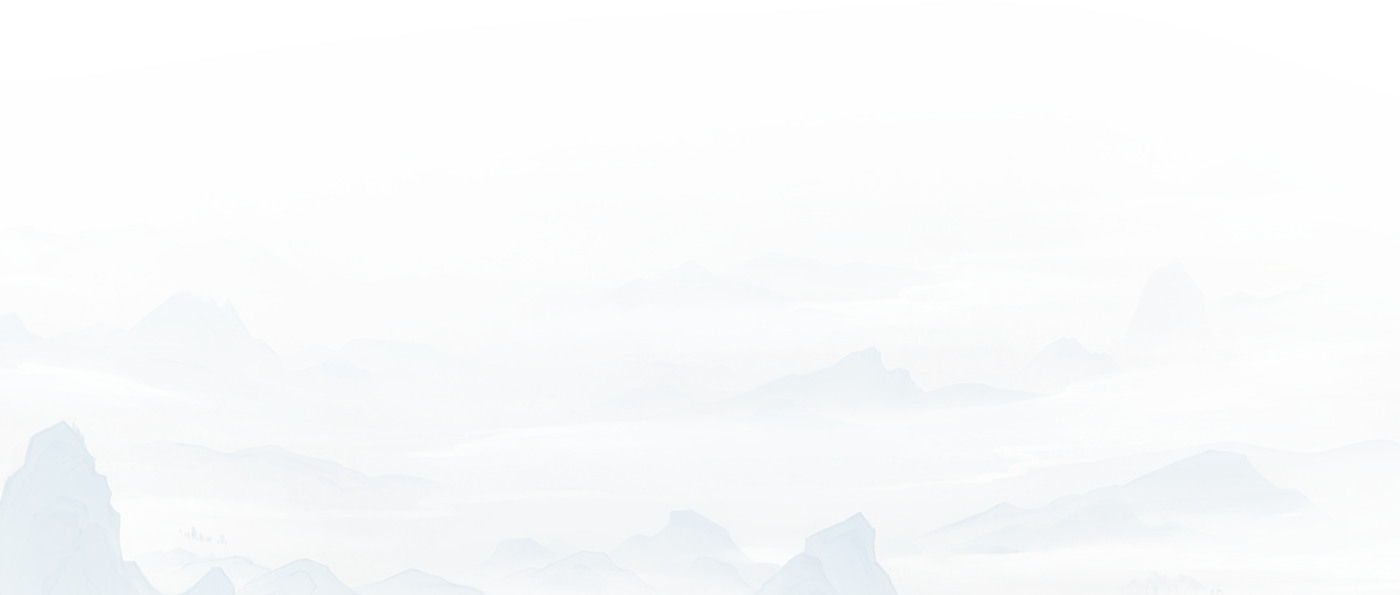



Lu Yong, a Poet of the Ming Dynasty, on an In-depth Tour in Hechuan
In 1175 AD, Fan Chengda, a poet of the Southern Song Dynasty, was appointed as the Military Commissioner of Sichuan and was on his way to Chengdu to take up his post. Although his boat passed through Hechuan, he didn't have time to tour around due to the rush of the journey, leaving a regret. This regret was remedied by Lu Yong, a fellow townsman of Fan Chengda from Wuxian County, during the Zhengde period of the Ming Dynasty.
Lu Yong was a poet. As an imperial censor on an inspection tour in Sichuan, he lived in Sichuan for nearly three years, thus having the opportunity to conduct an "in-depth tour" in the picturesque Hechuan. He fully enjoyed the beautiful scenery of Hechuan and, in admiration, wrote poems for the "Eight Scenic Spots of Hezhou".
Among Lu Yong's remaining works, there are at least six poems about the "Eight Scenic Spots of Hezhou", including "Fishing Fires at Dongjin" (Dongjintuo, where the White Pagoda is reflected in the river), "Evening Ferry on the Fujiang River" (the ferry at the Xiaonanmen Wharf), "Wild Geese Landing on Golden Sands" (at the Yazu area where the Jialing River and the Fujiang River converge, whenever autumn turns to winter, flocks of wild geese land on the golden sands), "Fishing City in Misty Rain" (Fishing City bathed in misty rain), "Auspicious Scenery in the Gentle Breeze" (in front of Ruifeng Gate, one can enjoy the scenery of the three rivers), "Moonlight over Pu Lake" (the bright moon rises over Puyan Temple in the north of Hezhou City and its reflection falls into the water) (packaging subtitles), etc.
Back then, Lu Yong roamed in the classical Hechuan and sighed at the beauty of the night in this small town surrounded by mountains and rivers in the poem "Fishing Fires at Dongjin": "The Dongjin River is vast with calm water and mist, / A solitary shore is faintly visible with a thousand lights shining. / In the middle of the night, the wind blows and the waves surge, / The stars and constellations are disordered, ing the fish and dragons."
This poem vividly depicts the scenery, bringing the serene night scene on the river vividly before our eyes, making people feel as if they were on the opposite bank of Dongjintuo in Hechuan. If we combine it with the description of "Fishing Fires at Dongjin" in the "Hezhou Gazetteer" of the fourth year of the Guangxu period, we can better appreciate the poetic charm: "Every evening, when the smoke flickers and the night is dim, looking far into the Dongjin River, the dots of fishing fires appear and disappear, competing with the stars and the moon in the gentle waves. With the sound of oars stirring the water,..."
Another poem by Lu Yong, "Evening Ferry on the Fujiang River", depicts the scene at the Fujiang River ferry at the Xiaonanmen of Heyang City: "The clear river surrounding the city is shrouded in mist, / Pedestrians on both banks are vying in a friendly manner. / It's cold and the sun is setting, with a long way home, / They are afraid that strong winds and waves will rise in the middle of the river."
The content of this poem seems like a folk painting of Hezhou in those days: Because it's getting late, the season is cold, and their respective journeys home are long, the pedestrians on both banks rush to the wharf one after another, worried about missing the last ferry and even more worried that there will be strong winds and waves in the river later, making it unsuitable for sailing. But what's interesting is that although the pedestrians are competing to cross the river, it is a "friendly competition" or "courteous competition", that is, they compete while giving way to each other, paying attention to seniority and order, which gives a strong sense of order. In this poem, Lu Yong vividly and thoroughly describes the psychological state of the pedestrians crossing the river from south to north in the picture.
Reading Lu Yong's poems makes one see something in front of their eyes and feel something in their hearts, as if traveling through time and returning to the classical and meaningful poetic and picturesque scene of Hechuan many years ago.





